Adhesive for fiberglass: features of choice
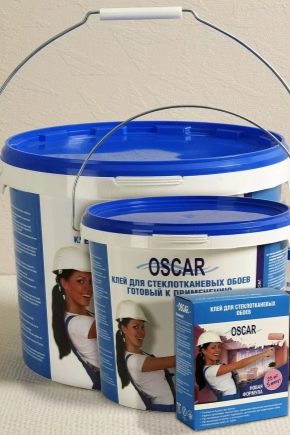
Vinyl wall coverings have been replaced by a more convenient and improved version - glass wallpaper. Due to the dense fibers present in their composition, they have many significant advantages. Let us consider in more detail the features of choosing an adhesive for such finishing materials.
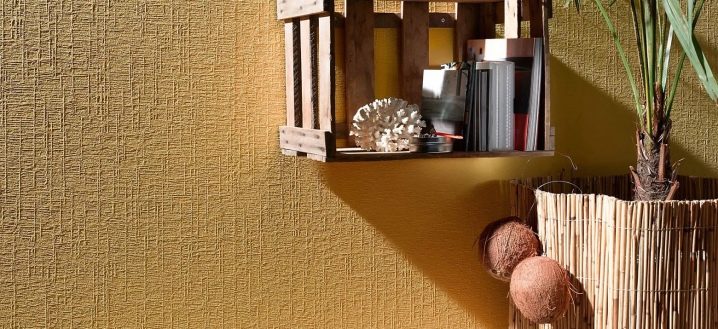
Advantages
Glass fiber has a number of positive qualities. These include:
- resistance to mechanical damage;
- they can be painted over and over again;
- environmental Safety;
- convenience in maintaining cleanliness;
- fire resistance;
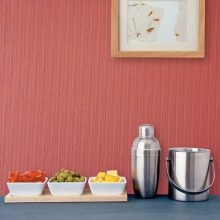
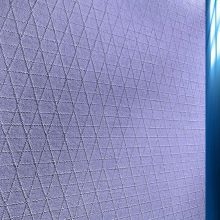
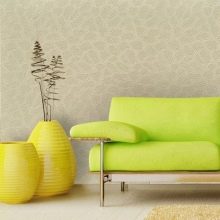
- heat resistance;
- moisture resistance;
- strengthening (reinforcement) of walls;
- property of breathable wallpaper.
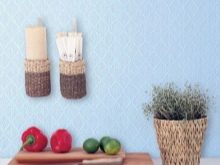
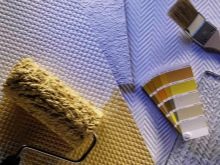
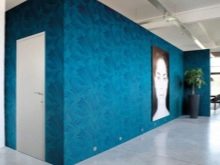
Regular glue will not work with this type of fiberglass. You will need a mixture with a more complex composition, additives and high adhesion.
Description
Wall paper is much heavier and denser than vinyl, so a standard starch-based composition will not be able to ensure their tight adhesion to the wall. Professional adhesives contain modified starch and complex polymer compounds.
There are several requirements for them:
- they must be moisture resistant so that the installation of wallpaper in rooms with high air humidity becomes possible;
- adhesion should be higher than that of conventional adhesive substrates (to ensure good adhesion to the wall and prevent rapid peeling);
- the balance of alkali in the composition should not exceed a value of 6;
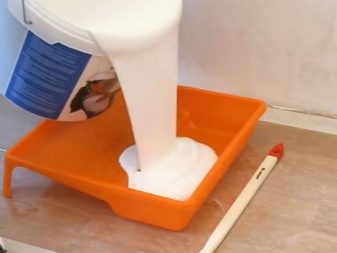
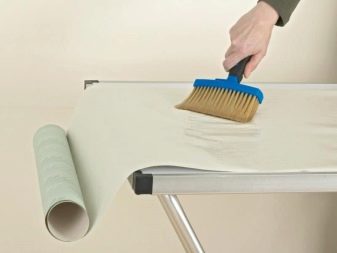
- additives, fungicides and antiseptics, which prevent the appearance of mold and fungi, will be a plus;
- the possibility of quick drying and a long shelf life - they will simplify the task for inexperienced craftsmen;
- solutions with pungent odors should be avoided - this is an indicator of harmful chemical additives.
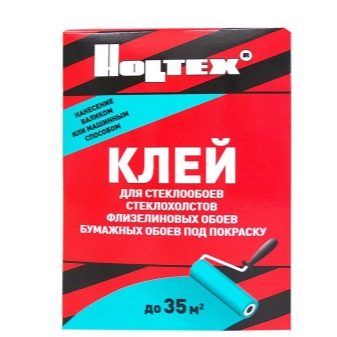
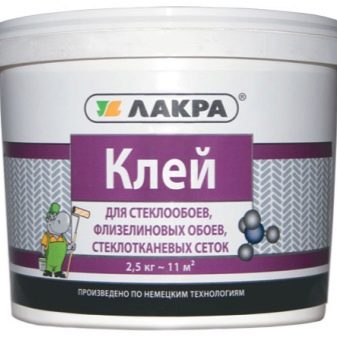
The price of glue depends on two indicators:
- the quality of adhesion to the working surface (adhesion);
- drying speed.
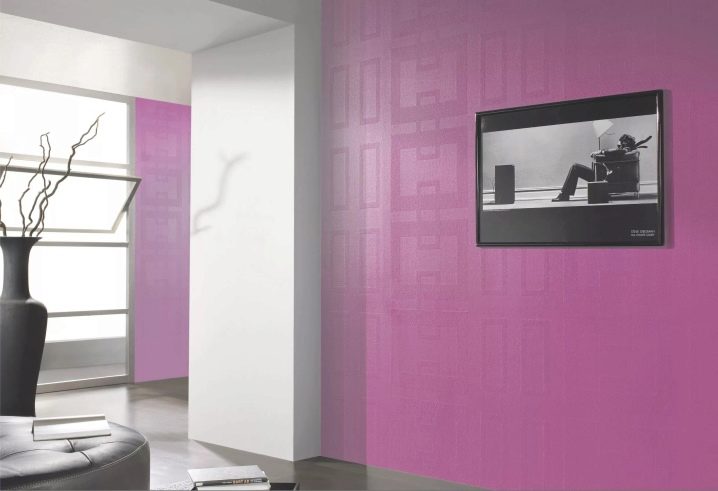
Specifications and composition
Fiberglass coatings are used not only for walls, but also for ceilings.
Adhesive mixtures are sold in two types.
- Dry. The glue powder is characterized by a long service life, compactness, and a more favorable price. The paste contains a substance responsible for adhesion and antiseptic additives that fight against the appearance of fungi and mold. The only drawback is the lengthy mixing process with water. The liquid is added little by little and is constantly mixed with the powder to prevent lumps from forming.
- Ready. This mixture is already ready for use. It contains antiseptic additives and polymers responsible for adhesion. Produced in containers of 5 and 10 kg. They cost a little more than powder glue, but there are no special differences in properties.
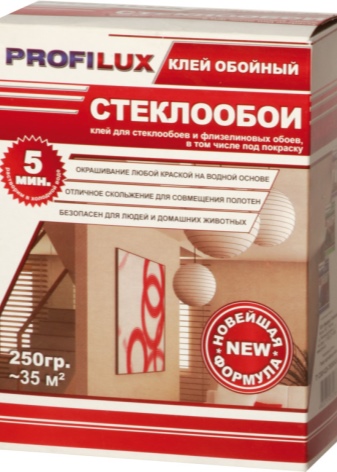
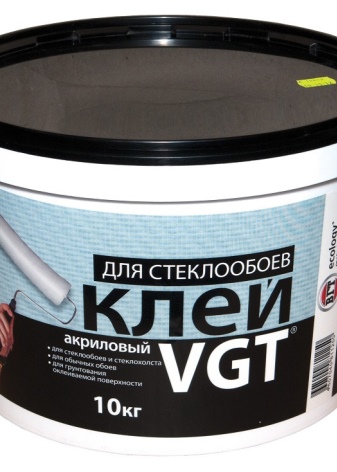
There are also varieties of adhesive solutions of a narrower or wider focus. It all depends on what kind of fiberglass you have, as well as on what surface you want to glue them. For fiberglass, the following adhesive mixes are suitable.
Universal
Simple glue differs from the usual composition with sophisticated additives. It is knitted to keep the wallpaper on the wall. The advantage of the universal solution is the ease of removing wallpaper after a long period of use. Not suitable for ceilings.
The complex glue contains additives that allow gluing non-woven, fiberglass and other wallpaper surfaces
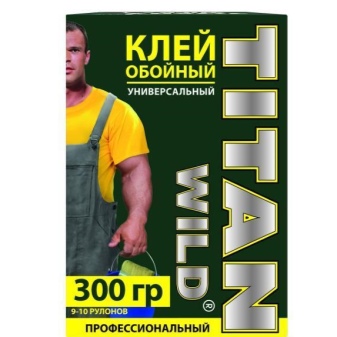
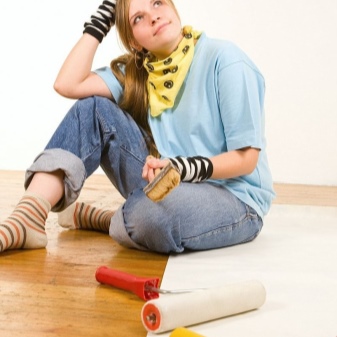
PVA based
Specially designed for gluing photo and wall paper.The main feature is its high moisture resistance, which allows it to be used in bathrooms and other rooms with high humidity. It is also distinguished by the simplicity of wallpaper dismantling.
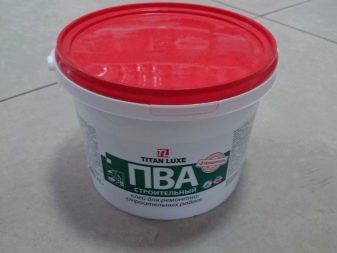
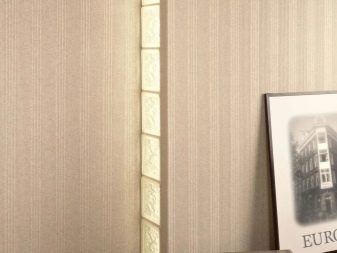
Dispersive
This is the strongest adhesive of all of the above. It is used when gluing heavy canvases on the surface of the wall and ceiling. Such glue guarantees high adhesion, but the process of replacing wallpaper (when using this substance) will be difficult without special tools.
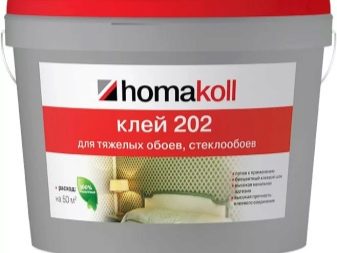
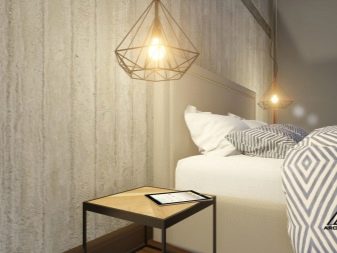
Heat resistant
This type of glue is suitable for all types of wallpaper. It will be a good option for country houses used only in the summer, cold verandas and other premises, which are characterized by exposure to subzero temperatures.
When choosing adhesives, pay attention to their quality, the place of the manufacturer on the market, as well as compliance with the standards and requirements of GOST.
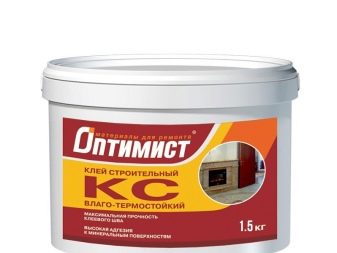
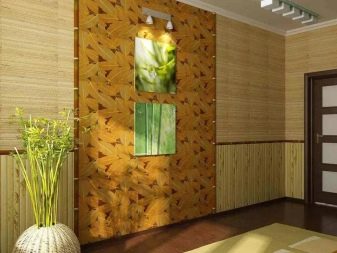
Review of popular manufacturers
In the market of adhesives for glass fiber wallpaper, several manufacturers are distinguished, taking into account the indicators of quality, price and popularity.
Oscar
This glue is sold both in powder form and as a ready-made mixture. It has many advantages:
- safe for health;
- heat resistant;
- moisture resistant;
- economical;
- has a long service life;
- has an affordable price.
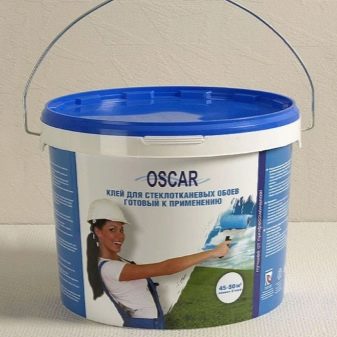
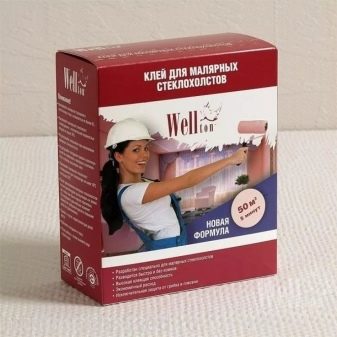
The dry powder must be diluted with water at room temperature according to the instructions on the package. Oscar glue dries in 10-15 minutes. This property allows you to adjust the location of the wallpaper during work.
After drying, Oscar becomes transparent, does not leave marks and stains. Suitable for a wide variety of surfaces: wood, concrete, cement and others. This manufacturer has the best reviews.
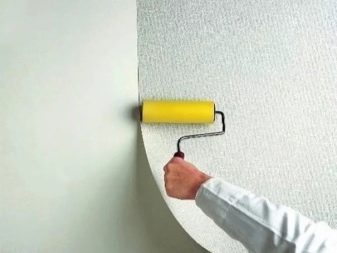
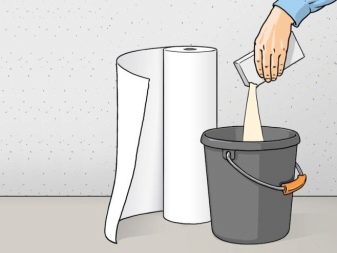
Kleo
It contains standard components: modified starch, funicides and antifungal agents. This glue is very effective and easy to use. It is distinguished by such features as:
- environmental friendliness;
- an easy way to get a mixture;
- profitability;
- easy way to apply.
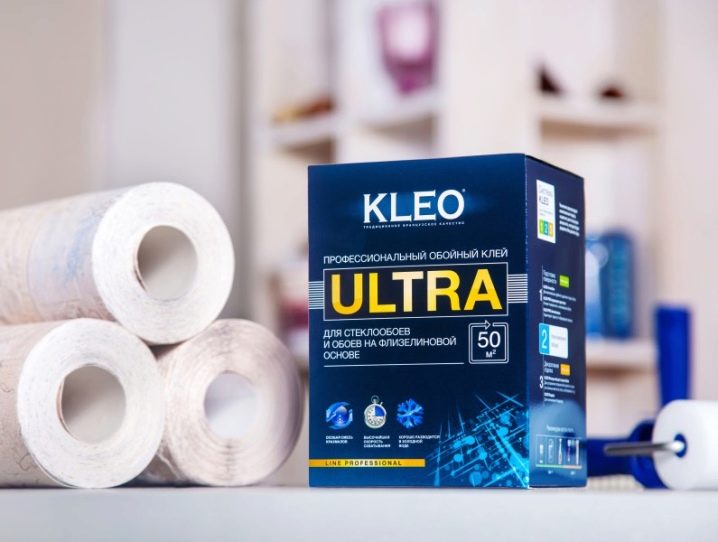
It contains no chemical additives, so it is safe for humans and animals. The grip quality does not suffer from this. This glue is suitable for surface treatment of walls and ceilings. After mixing the powder and water, it is enough to wait 5 minutes, after which the solution will be ready for use. It dries slowly on the surface, making it possible to level and correct.
The main feature of Kleo is that it makes the wallpaper breathable, which prevents mold and mildew.
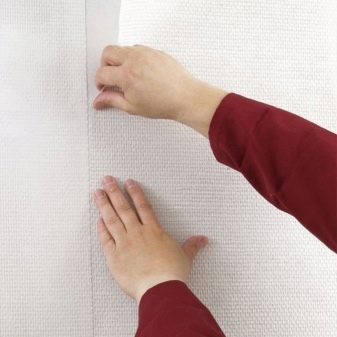
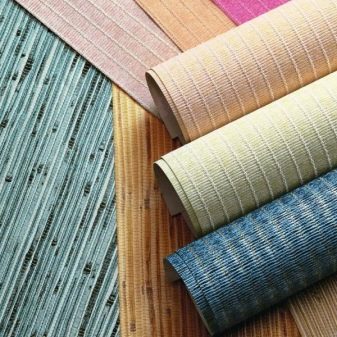
Quelyd
Quelyd is a dry mix similar to coconut flakes. It has a number of positive properties and advantages:
- protection against fungus;
- firmly adheres to surfaces;
- makes the finish breathable.
The wallpaper sheet can be corrected and corrected during gluing. Quelyd adhesive does not stain after drying.

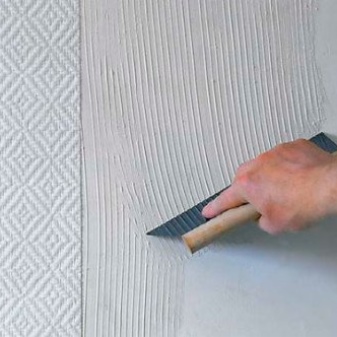
Metylan
Metylan is a less popular wallpaper glue that is highly moisture resistant. It is more often used in rooms with high humidity. After gluing with this composition, the wallpaper can be painted many times. Leaves no residue or stains.
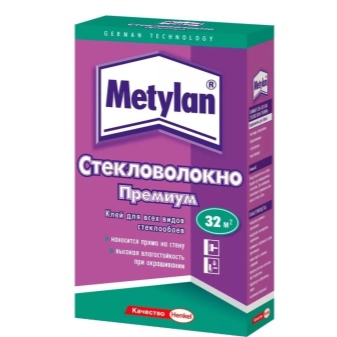

What to consider when choosing?
High-quality wallpaper glue is necessary for a beautiful and accurate work with canvases of any kind. To select the right product, you need to consider the following criteria:
- the glue should be suitable for heavy wallpaper;
- must be moisture resistant if installation takes place in damp rooms;
- antiseptic and antifungal supplements will be a big plus;
- the composition should allow the finish to "breathe";
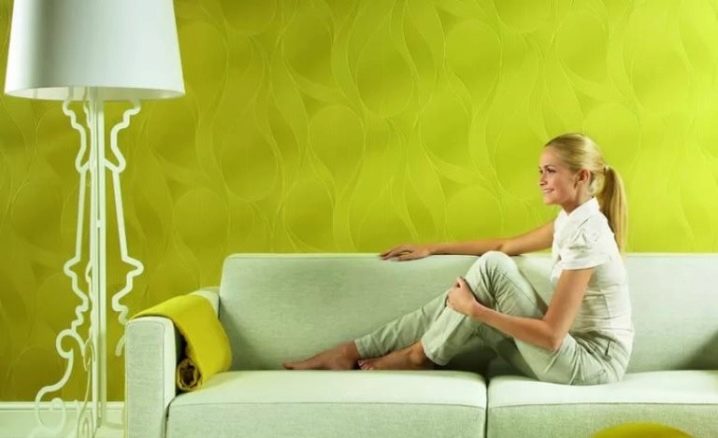
- if you like to change the color of rooms, then pay attention to compositions that allow multiple painting of wallpaper materials;
- short drying time;
- the glue should be characterized by an easy preparation method;
- compliance with storage periods.
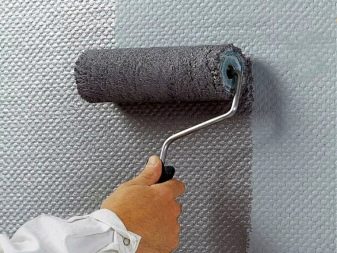
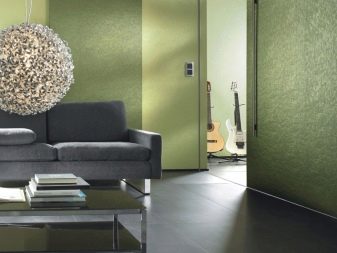
How to calculate the quantity?
To correctly calculate the glue consumption, you need to know the square of the surface of the walls or ceiling.
Take, for example, the total consumption of the finished adhesive composition is 200-300 grams per 1 m2.You also need to take into account the cost of glue for preliminary treatment of surfaces with soil - this is 50-70 grams per 1 m2. The resulting figures (250-370 grams) of the composition are multiplied by the square of the surface. Thus, you can find out the amount of purchased glue. Better to take it with a small margin.
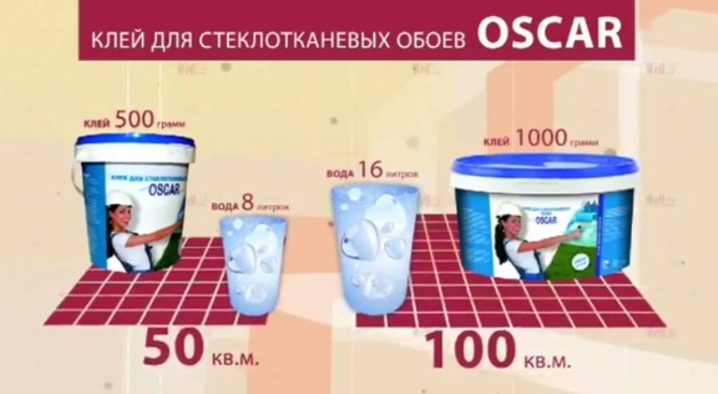
Helpful tips from the pros
Experienced craftsmen have identified a number of nuances that will help with finishing work.
- When mixing powder glue, water is poured into the container, and a kind of funnel is created, into which the glue powder is slowly poured.
- Lumps need to be removed after 5 or 10 minutes of swelling
- The work surface must be flat. To do this, the walls or ceiling must first be putty and primed (a highly diluted adhesive composition can be used instead of a primer).
- The texture of glass wallpaper can hide some irregularities, so there is no need to try to get a perfectly smooth surface.
- The putty and primer must dry to ensure maximum adhesion of the adhesive to the surface and wallpaper.
- It is better to apply the glue with a roller or brush (depending on the size of the work surface). The composition is applied to the wall or ceiling, but not to the wallpaper. The layer should be even and be 1-2 mm.
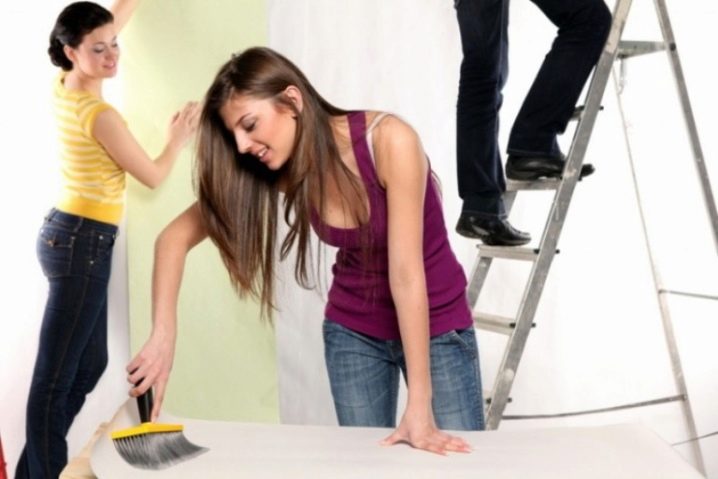
- Excess glue must be removed using a sponge or rag.
- During gluing, some of the glue may protrude at the junction of the wallpaper. It does not need to be removed - after drying, it will not leave stains.
- With the application of wallpaper, you must be very careful, glue their joint to joint. You need to pay attention to the drawing to avoid unevenness.
- If your paste does not have heat resistance, then the room temperature should be above 10 degrees, but below 23.
- When drying, there should be no draft in the room. It is necessary to avoid direct sunlight, otherwise there is a risk that the glue will not adhere well to the wallpaper.
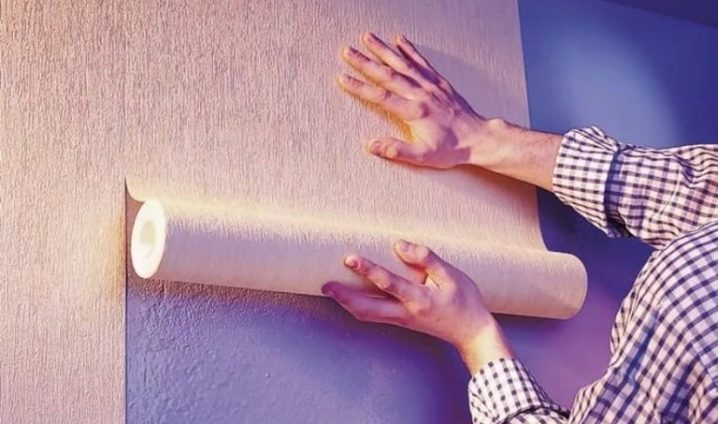
Considering the above nuances, fiberglass wallpaper will be glued smoothly and efficiently and will last for many years.
How to glue fiberglass, see below.













The comment was sent successfully.